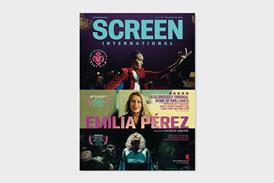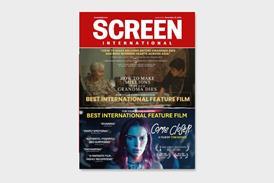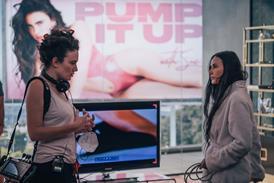As Sound It Out starts its theatrical release, Screen talks to Nottingham based film-maker Jeanie Finlay about her DIY approach to the project, including the use of crowdfunding.
Today marks the release of Jeanie Finlay’s documentary Sound It Out about the last remaining surviving vinyl record shop in Teesside, UK.
Funny, heartfelt and relevant, the documentary received its world premiere at this year’s SXSW and was born out of Finlay’s desire to make a film during the break of her current production The Great Hip Hop Hoax.
“I just thought I want to hold a camera… I just want to go and make a film. And I knew that I could just drive up North, sleep in my old bedroom which I had when I was a kid at my parents’ house and go and make the film at Sound It Out [the name of the record shop]”
Having known Tom Butchart, owner of Sound It Out, since school, his record shop seemed the perfect focus of a small independent project.
“It just felt really rich; it was really important to me that it was that shop because it was in the place where I grew up… small shop, distinct community, men collecting and it just seemed to offer a lot really. And also, there were poetic mirrors in it. It’s an area where industry is dying and analogue thrives. It just felt like culture beating.”
With a year’s worth of footage collected, it was Sheffield Doc/Fest’s Charlie Phillips – combined with a pitch to a broadcaster who felt the idea was too small to make more than a 20-minute piece about – who introduced the idea of using crowdfunding to complete the film.
The first campaign through IndieGoGo was predominantly used to complete the film – “[to] enable me to buy some sound equipment for my 7D and to get Steven [Sheil, her husband who did additional camerawork] to come up, just petrol and stuff like that” – and Finlay was astonished with the results, including a $2,000 donation from an American soldier in Iraq who came on as an associate producer.
It transpired that his brother worked at United Record Pressing in Nashville and he liked the idea that some of the records his brother made would be for sale in Sound It Out.
Having completed the film (the first campaign raised around $4,500), it was at SXSW that Finlay was approached by the BFI who encouraged her to do a P&A application, on the proviso that she made crowdfunding an element of it. After a “half-hearted” third campaign for SXSW – Finlay said a “Britishness” shone through resulting in embarrassment at asking people to fund a trip to America – there was originally apprehension about carrying out a fourth campaign.
“It just felt like can we do it again? It just felt like such a big ask and we came up with that figure because we thought it was kind of achievable, if we really went for it, we could get that kind of money and it would unlock investment from the BFI, so it was totally worth doing.”
That figure was $10,000; they raised $10,826 before the end of the campaign. This unlocked the BFI investment and started the road towards its theatrical release, and marked the end of the use of IndieGoGo for the project.
“We’re really tired. Part of the work of doing crowdfunding is trying to engage audiences that you don’t know, so there’s an enormous amount of legwork. For every 100 people that visit the crowdfunding page, only one of them will donate.
“Film-makers or family members funding other film-makers’ films is not a sustainable model, at all. So it’s quite hard, you don’t want to flood the people. If you’re using social media, you can’t help but advertise the campaign but we tried not to bombard people with stuff and make it fun. Everyone who backed our film got a personalised video dedication on YouTube on our Facebook group and Twitter. We were trying to make it special.”
With up to 25 screenings in the pipeline, all the work for Finlay currently revolves around Sound It Out’s theatrical tour with - perhaps surprisingly - the South of the UK being easier to programme. Dogwoof have also come on board as a sort of sales agent – Finlay’s company Glimmer Films is the distributor theatrically – handling the film’s worldwide sales (apart from North America), festivals, the DVD release (set for February next year) and also pop-up screenings of the film.
“The way they work is a really brilliant fit for us… They’re taking on this new role, they’re trying to reinvent being a sales agent. They’ll do the DVD release. It’ll be just a standard DVD and we’re going to be looking at independent retailers to stock that and I’ve kind of given them a no HMV clause [laughs].”
Having been the official film of this year’s Record Store Day [an initiative which sees independently owned record stores coming together with artists to celebrate the art of music] Finlay is also keen to work with them again and arrange screenings in record stores next year.
“They’ve been amazingly supportive. It’s such a grassroots thing; it’s run by 4 people, so yeah, they’ve been massive.”
For now though, Finlay can just reflect on what she deems has been a “really interesting process” in making Sound It Out with a DIY vibe: “Partly because it feels right for the film, but partly because it was an opportunity to learn things.” And she wouldn’t change a thing.
“It’s been really joyful. That sounds really trite but it’s been a really amazing experience. All of it.”
For more information on Sound It Out, including upcoming screenings or to request your own screening, visit the official website

















1 Readers' comment